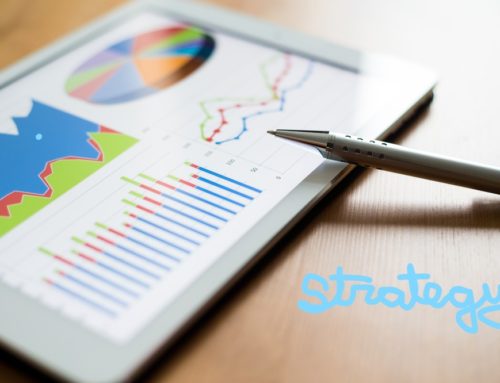Small business is big business for the United States’ economy. According to the Census Bureau’s Annual Survey of Entrepreneurs, there were 5.6 million employer firms in the U.S. in 2016. Firms with fewer than 500 workers accounted for 99.7 percent of those businesses.
“Information is power. For small businesses, it can make the difference between leaving your competition in the dust and choking in their wake,” admonishes Matt Farrelly. “Knowing who your customer is, and what drives them to your business offer is crucial. Harnessing that knowledge to adapt and improve your offer could be a game-changer.”
Why Small Businesses Need Big Data:
1. To launch effective marketing campaigns
Who has marketing dollars to waste? Certainly not the small business whose advertising budget is likely to be quite limited. More reason to utilize every scrap of information available concerning the needs, habits, and likes of today’s savvy consumer.
Rahul Sharma advises, “Companies can use Big Data in this regard. By analyzing this data in a more meaningful manner, they can design improved marketing strategies to secure better ROI.”
2. To improve future products
Past success does not guarantee future growth. Even when products “go viral,” future sales are not assured. Harnessing the power of data analytics can assist in maintaining current excellence and designing future products with as much, if not greater, appeal. Tracking data from multiple sources provides the highest potential for quality analysis with the prowess to uncover current concerns even as it delivers opportunities for more significant future improvements.
How Big Data Utilization Impacts Small Business:
“Your business can — and should — collect, analyze and act on consumer data to improve the way you market your products and services. But with endless possible data points to track and analyze, it can be challenging to know where to begin,” admits Guy Powell of the Forbes Communication Council.
That’s why Matt Farrelly references “a raft of tools” to help small businesses working within a tight budget to become acquainted with what big data can do for them. “Reams of data won’t be of much use if you can’t translate it into useable insights,” states Farrelly.
- Customer relationship management (CRM) systems pull all your customer data enabling an agile response from you.
- Hubspot’s CRM as a free resource allows smaller businesses to experiment before deciding to invest in more complex data-gathering systems.
- Google Analytics traces customer engagement and behavior.
- Google Display & Video 360manages and tracks the effectiveness of marketing campaigns.
- Google Data Studio can automate the gathering of data for a “bigger picture” look.
Regardless of business size, the key to gleaning usable information is this: Identify your end goal. All efforts to increase profits and raise brand recognition will be for naught if you don’t align your data analytics with a question whose answer addresses that end goal.“Getting this right is critical for success,” stresses Powell.
Be advised of this roadblock that could hinder your efforts. Research conducted by New Vantage Partners (NVP) found that although 85 percent of companies are trying to be data-driven, only 37 percent of that number say they’ve been successful.
Thomas LaMonte points to one potential reason: 41 percent of small businesses admit their big data initiative stalled because of resistance or key stakeholders lacked understanding of what big data is.
Before you dive in, commit to an initiative that will educate you and your staff, with a specific focus on how your business can most effectively leverage big data.
LaMonte concludes, “Because without it you’re in trouble. If you don’t make big data a priority to future proof your business model, you will fall behind your rivals.”
The Atlanta Small Business Network chimes in, boiling it down to this. “If your small business is not benefiting from big data, you could be missing out on a golden opportunity. Even the smallest firms can benefit from quality data analysis, and you can too.”
Under the leadership of Kathy Roman and her more than 25 years of market research and analytics experience, RomAnalytics brings a wealth of knowledge and passion to every individual and project we encounter. Because we specialize in market insights, data analytics, data engineering, and positions that support insights and analytics, we can expertly handle all your employment needs. “Make your talent acquisition and job search smarter by connecting with us today!”




